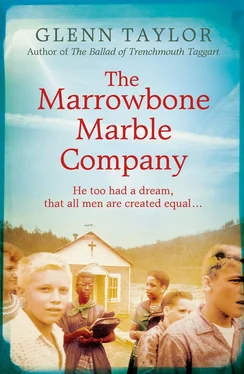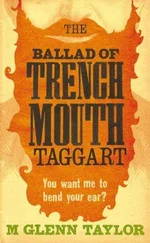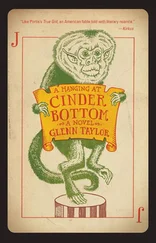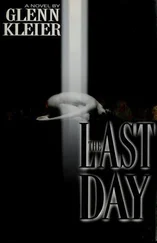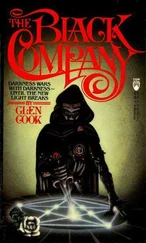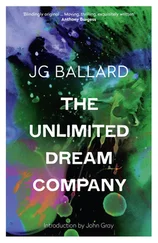1 ...6 7 8 10 11 12 ...22 The thought came. This is it .
But then a corpsman was there, and he stuck in a shot of morphine. And then there was a stretcher and some movement, and then nothing.
The night ahead was something Ledford would never forget. He lay in a wounded dugout, eight feet deep, at Henderson Field. The heat inside the earth there was too much to take, and the men were packed shoulder to shoulder. They screamed. The smell induced gagging. Ledford tried to keep deaf, but his eardrums were healing. He tried to shut his eyes, but the swirls on the black stage of his eyelids erupted like they never had. His stomach jumped and his throat crawled up his tongue. He breathed through his mouth, labored, like a dog.
Once, before passing out, he turned and saw Erm, three men away from him, his forehead wrapped in bloody gauze. He stared at Ledford, and a corpsman came by and stuck Erm with morphine, and he smiled, toothless.
The next morning they were flown out to a Navy hospital. Espiritu Santo it was called. It was there that Erm said to Ledford, “I told you we’d be home by Christmas for the parade.”
The USS Solace carried the men to New Zealand. On board, an infantryman younger than Ledford cried with joy in his bunk. Everyone ignored him. They all spoke upwards, to the ceiling. Loud. Some perched on an elbow to see their surroundings. It didn’t seem real that they could be out of the jungle.
“Think they’ll have any KJ billboards up back home?” somebody said.
“What’s a KJ billboard?” It was the teary kid. “Ain’t you had your eyes open doggie?” Ledford said. He was drunk and delirious. “Kill Japs, kill Japs, kill more Japs. There’s one plastered across every piece of plywood in the Solomons.”
The kid shivered. Jungle disease was in his blood. “I’m done with killin,” he said. “Japs or no Japs.” He looked down at his shaking fingertips. “I just want my fingernails and hair to start growing again,” he said. As dysentery came, such growing went. The jungle blood could rot you inside out.
“Yeah,” Ledford said. “You’re done with it all right doggie. You go on and turn soft. Let those nails and hair grow real long.”
A couple Marines laughed. Another one said, “Damned pansy Army dogs.”
Erm Bacigalupo said, “Put some panties on while you’re at it and bend over.” Everyone laughed hearty. There was no longer any room for soft. A code needed to be kept. Among men who’d done what they’d all done together, none could ever speak of going soft again. To do so would invite their nightmares to the waking world.
That night, Ledford made his way on crutches to Erm’s bunk. He apologized for knocking his teeth out. “I’m truly sorry for it,” he said. He held out his hand and they shook. Ledford pledged that once stateside, he would buy his friend some new teeth.
August 1945 August 1945 May 1946 June 1946 September 1947 October 1947 November 1947 February 1948 May 1948 July 1948 September 1948 November 1948 April 1949 October 1951 June 1953 II - A House on the Sand June 1963 August 1963 September 1963 December 1964 February 1965 March 1965 April 1965 May 1966 June 1966 February 1967 June 1967 July 1967 September 1967 October 1967 February 1968 March 1968 April 1968 July 1968 December 1968 January 1969 Acknowledgments About the Author Also by Glenn Taylor Author’s Note About the Publisher Конец ознакомительного фрагмента. Текст предоставлен ООО «ЛитРес». Прочитайте эту книгу целиком, купив полную легальную версию на ЛитРес. Безопасно оплатить книгу можно банковской картой Visa, MasterCard, Maestro, со счета мобильного телефона, с платежного терминала, в салоне МТС или Связной, через PayPal, WebMoney, Яндекс.Деньги, QIWI Кошелек, бонусными картами или другим удобным Вам способом.
I T WAS M ONDAY, the sixth. The grandstand at Washington Park Race Track was filled. Elbow to elbow they sat and waited, Southside Chicagoans and out-of-towners together. They’d come for the match race between Busher and Durazna, for which the purse was twenty-five grand.
Under the grandstand overhang, Ledford and Erm swilled from their respective flasks. They studied their short forms in silence. A fat lady in a flowered hat sat down in front of them and Erm made a farting sound. She turned, frowned, and fanned herself with a program. “Excuse you,” Erm said to her. He flashed his smile and winked at her. His teeth were white as ivory, set solid and paid in full. When the woman left to find a more suitable seat, Erm hollered, “Keep fannin honey, you don’t know from hot.” He stood for no reason and wobbled a little on his feet. He sat back down. “Did you see that broad? She was wide as she was tall.”
They were drunk. Had been so for three straight days, nine hours of sleep in total.
“What’s the skinny on Durazna’s trainer?” Ledford said.
Erm didn’t answer. He was eyeballing the suits down front. “Look at these cocksuckers,” he said. “I paid good money for these seats. I gotta look at these silver-haired bastards all day?”
Ledford licked his pencil and drew a circle around the words Oklahoma bred .
“What’s the point in standin? There’s twelve minutes to post, for cryin out loud.” Erm’s ears were turning red. He got like this, and there was no point in trying to stop it. “Look,” he said. “See how they all hold their binoculars with their pinkies out? How much you think they paid for those binoculars?” He stood up again. “Hey, Carnegie. Hey.” The men down front knew not to turn around. They recognized that kind of voice.
“Carnegie came from dirt,” Ledford said. He didn’t look up from his Racing Form .
“What?” Erm thought about sitting back down, but didn’t. He ground peanut husks with the soles of his Florsheims.
“Carnegie came from poor folks. He was a philanthropist.”
“Philanthra-who-in-the-what-now?” Erm cleared his throat and spat on the ground. “Pipe down, college boy.” He kicked popcorn at the empty seatback in front of them and sat down. “Choke those fuckin suits with their binocular straps,” he mumbled.
Ledford said he wanted to go to the paddock and see the horses running in the fourth.
Erm looked at his wristwatch. “You go on,” he said. He’d set up a three-thirty meeting with his uncle and needed to be in his seat.
Down by the paddock, the horseplayers tried to blow their cigarette smoke above the heads of the tourists’ kids. It was hot and drizzly. Undershirt weather. A track made soft by summer rain. Ledford was in the bag and it wasn’t yet three o’clock. He drew another circle around the number nine in his short form, put it up over his head like a rain canopy, and walked inside, away from the paddock. He chewed cutplug tobacco. “Homesick Dynamite Boy,” he said as he walked. It was the name of the number nine horse, and at 7 to 1 it was an overlay if he’d ever seen one. He looked at his short form again. His left shoulder knocked against the side of a pillar, so he sidestepped, and his right shoulder knocked against a man in a black shirt and matching derby hat. There were no Excuse me ’s. This was expected. Ledford felt the man’s eyeballs on him as he walked away.
He had a fifty, three twenties, and a ten left in his billfold.
Since the war, Ledford had been lucky at the races. He’d once paid a semester’s tuition with a single day’s payout. Erm had helped him along with tips from men with no names. Ledford didn’t ask questions. He stayed drunk much of the time. He’d finished college and proposed to Rachel and taken a desk job at Mann Glass. His life was a game of forgetting.
Читать дальше
